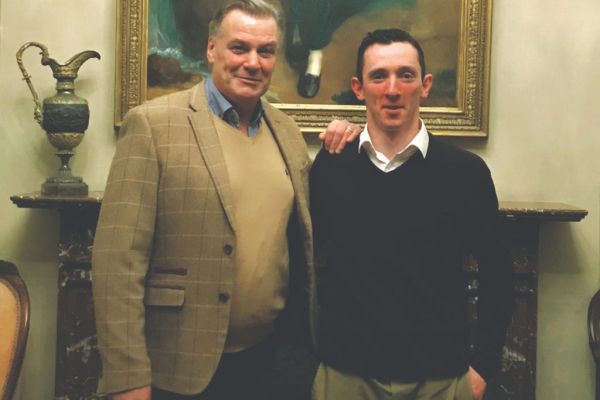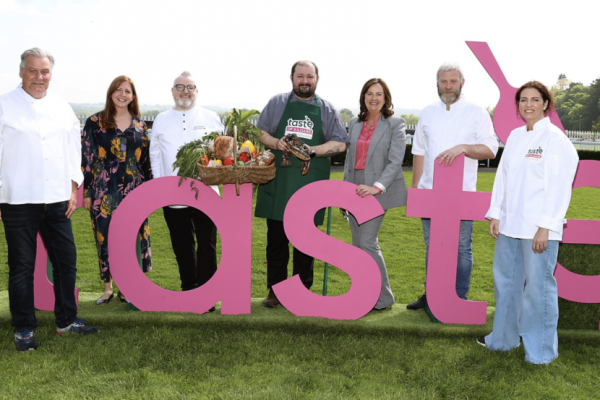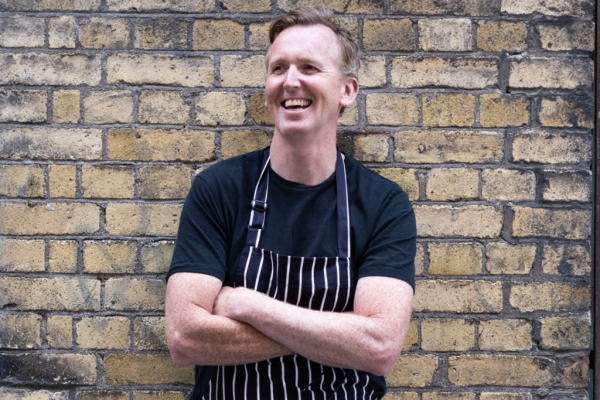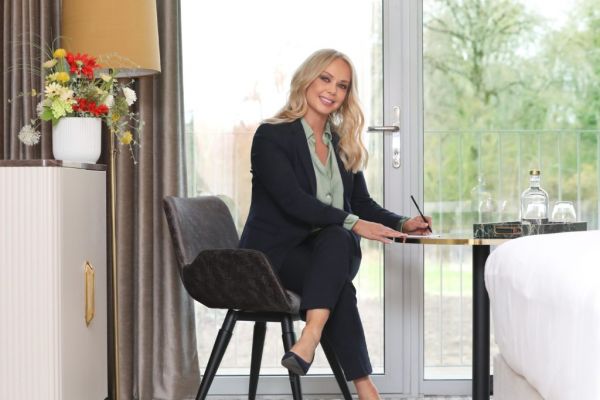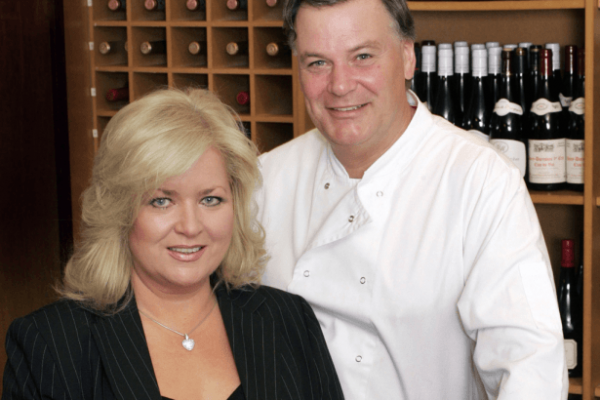Exclusively for Premium Plus and digital website members, Hospitality Ireland presents a piece originally featured in the December 2017 issue of our print publication in which Irish celebrity chef and proprietor of Dublin's L'Ecrivain restaurant Derry Clarke talks to Park Hotel Kenmare chef James Coffey.
Don't currently subscribe to Hospitality Ireland? You can read the interview now if you sign up for a Premium Plus subscription, which is FREE for 30 days. Click the SUBSCRIBE button at the top of the page for details on how to sign up.
Derry: So you're here at the Park Hotel in Kenmare five years now?
James: Five years, yeah. Just getting over my fifth season. When I started here first, we didn't have the brasserie. Now we've incorporated Dromquinna Manor into it, so we do all the wedding prep for there. We prep everything here at the hotel and ship it out to them, so we've got that, we've got the brasserie, we've got the fine dining. We've got quite a few things going on.
Derry: Where are you from, originally?
James: I'm a Limerick lad, from just outside Adare. I started working as a chef in County Limerick, originally, with Aidan McGrath, out at Muses restaurant. It was McCluskey's restaurant first, then it became Muses. I spent a good four years with Aidan there, then I headed off to do my cert course at Shannon College of Hotel Management, but I was still working with Aidan at the same time. Then I decided to go to London for quite a few years.
Derry: Was that just to get out of Ireland and see other things?
James: No. At the time, I suppose, it was Dublin or London. We didn't have many Michelin restaurants back then. There was Guilbaud's, and there was Chapter One, but Aidan had worked in London for years and had always spoken very fondly about London, and I was always reading about the great chefs over there, so I decided it was the place for me. So, I packed my bags and just went over, and I eventually took a job in 1 Lombard Street. It was quite old school, quite classical, but I learnt a lot. It was a very traditional brigade. You had to work your way up to chef de partie, so I spent a number of years there and thoroughly enjoyed it. I spent about five years in London altogether, then came back to Ireland. Then Aidan actually ended up taking the job as head chef over here in Sheen Falls Lodge, and he put me down as his sous chef, and that's what got me to come here to this area first. I spent about four years there in total, and went and worked for Capella Hotels, and I was going all around Europe opening hotels for them. Then I eventually came back to Kenmare.
Derry: So, is Kenmare home for you?
James: Kenmare is home for me. I have family here, so I'm here to stay. When I came back here from London, I thought, "This is a fantastic area. This is for me." I love picking mushrooms and foraging in the woods around here.
Derry: Kenmare has always been known as a food town.
James: It has been. I mean, if you look back in history, it hasn't gone through many changes either, but I can see it happening. I can see a bit of a change now. There are restaurants moving in and there are things opening up. It's needed, I suppose, to keep things fresh and current.
Derry: The Park Hotel is old-style dining, isn't it? I can remember the Park was always a full five or six courses.
James: It was, and that's what we're still doing here. I suppose we opened the brasserie because that's really what people wanted, but, to be honest with you, I think people come to the Park now and they seem to like the grandeur of the room. A lot of people come here for special occasions. It's very much a special-occasion hotel, and I actually find the fine-dining restaurant is nearly busier now than the brasserie. We thought it would be the other way around. We started a tasting menu this year, and it's been really well received.
Derry: Do people who come to the hotel do one night here for a meal and then venture out into the town for another night?
James: That was the case, but we're starting to keep people in now for the second night. It is hard to compete when we're right in the middle of the town, with so many restaurants on our doorstep, but we're starting to notice we're keeping people in, and we're getting more people coming in, which, ordinarily, we wouldn't have had. We are getting a lot of casual diners coming into us now, so what you lose down the town with hotel guests is kind of compensated for by the few who are coming in from outside.
Derry: What difficulties do you find running a kitchen here?
James: Space is an issue. We also don't have the delivery schedules you'd have in Dublin, I can't get things every day, but storage, really, is the problem. There's also the logistics of getting stuff in on the day for weddings. I can't store it. I don't have a walk-in freezer or any of that kind of stuff, so you get stuff in, you prep it, you get it out, but we have it down to a fine art, to be honest with you, and it works for us at this stage.
Derry: The hotel is seasonal, isn’t it?
James: It does close, but the period's getting shorter and shorter. We're closing for two weeks in December, then we're closed for the month of January, and we're open again at the start of February.
Derry: Is it difficult to recruit chefs working in a seasonal venue?
James: It's getting harder and harder and harder every year, for two reasons. The first is because it's seasonal. Years ago, you'd get chefs coming from abroad, but that seems to have stopped. I think there's a shortage all across Europe. And then there's an awful problem in Kenmare with accommodation. Chefs just can't get accommodation in Kenmare now, and anyone who does have a house, they're renting them for holiday homes and doing Airbnb. So, if chefs come, they get substandard accommodation and they're not happy, and it's just really tough, so you have to be nice to the staff. You have to look after them when you get them.
Derry: What hours do you usually work?
James: I normally do a split. I'll come in in the morning and cover the breakfast shift because everyone in the hotel eats breakfast. They might not eat dinner, but they all eat breakfast. Then I'll go away for a few hours in the afternoon, pick the little one up from school and come back here for the night-time services. That's my usual day. Most of my staff don't work splits any more. They're working straight days, coming in at one o'clock, and they'll be out the door by half ten at night. That's the norm.
Derry: A lot of places now are doing four-day weeks with longer shifts. What do you think of that?
James: I do know, myself, in the industry, it's very hard to do an eight-hour day, and we need to live a balanced life, so I think it's a great idea if you can staff accordingly.
© 2019 Hospitality Ireland – your source for the latest industry news. Interview conducted by Derry Clarke. Click subscribe to sign up for the Hospitality Ireland print edition.
